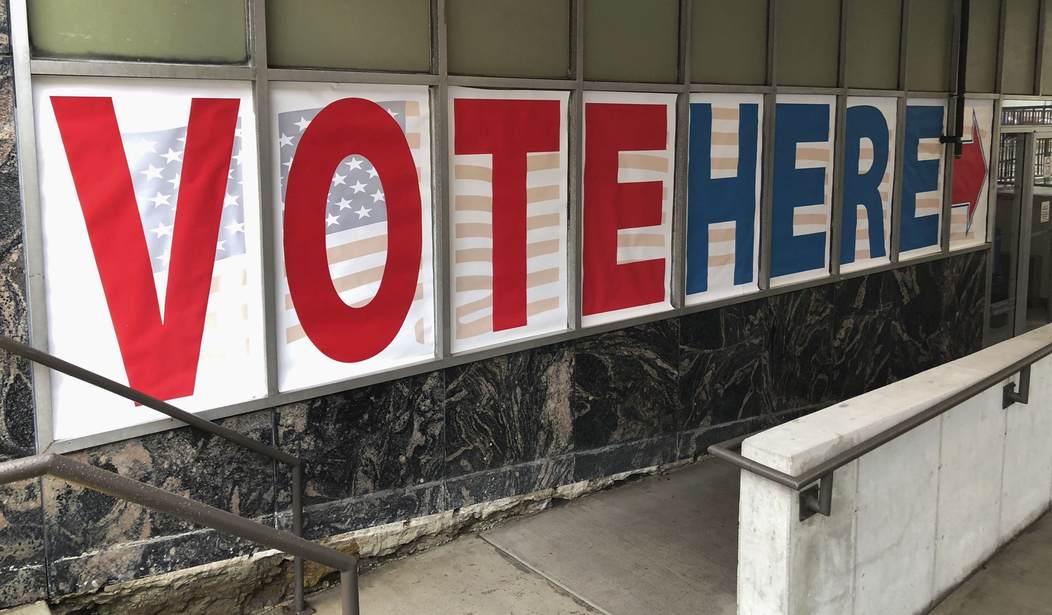No, a federal appeals court didn’t strike a blow against the growing state-based effort to reform the way Americans elect the president.
Last week’s ruling by the Denver-based 10th Circuit Court of Appeals dealt only with a state law requiring presidential electors to vote for their party’s nominee. It had nothing to do with the National Popular Vote Interstate Compact.
Yes, Elizabeth Warren and other Democrats have called for the abolishment of the Electoral College. But that’s not the compact.
The compact, as enacted into law by 15 states, ditches the winner-take-all method used by 48 states and the District of Columbia to award their electors. Critically, it not only preserves the Electoral College, but maintains the vital constitutional role of states in the election of the president.
Remember, the Electoral College is not a voting method. Instead, it’s a system — and it’s this system that the compact keeps intact, totally unchanged.
The distinction between the winner-take-all voting method and the system of the Electoral College is critical, though most people overlook it.
While the Founding Fathers clearly wrote the system into the U.S. Constitution, they never chose a voting method. In fact, they never even considered the state-based, winner-take-all method.
Rather, state legislatures were given the sole authority to choose a method of awarding their state’s electors. Massachusetts has changed its method 11 times since the first presidential election in 1789.
As unseemly as it would be, the legislature of my home state, the Ohio General Assembly, could in its infinite wisdom award all of its 18 votes to the winner of a wet T-shirt contest. Of course, such an absurdity would never happen, but nonetheless it would be completely constitutional.
Recommended
More plausible is this: Ohio’s electors would be handpicked by the governor or legislative leaders in a smoke-filled back room of the Statehouse in Columbus, regardless of how Ohioans actually voted. This particular method has been used by states in the not-so-distant past.
Many conservatives are also excited by the policy implications of the National Popular Vote Interstate Compact. As Townhall’s Matt Vespa has observed, “It could curb the proliferation of bad national policies that are drummed up to win elections.”
That’s because right now we don’t elect a president of the United States of America. We elect a president of the Battleground States of America.
The views of most voters in most states don’t matter. The candidates, Republican and Democrat, instead pander to voters in the 12 or so battleground states. As a result, the perversion of policy caused by must-win states like Florida or Iowa is huge. Think Medicare Part D and ethanol subsidies.
A presidential election under the compact would be completely different from what we have now because the votes of all Americans would be equal.
Republicans would run as conservatives, reflecting the basic center-right values of the country. Meanwhile, Democrats would run as progressives (aka socialists) on a platform written by The Squad.
This would also give conservatives in deep-blue California and New York a reason to vote. Right now, millions of Republican voters in those states stay home. In some cases the GOP doesn’t even field candidates. All of that would change with the National Popular Vote Interstate Compact.
Even President Donald Trump has recognized this.
“I would rather have a popular election, but it’s a totally different campaign,” Trump said during a “Fox & Friends” interview. “I would rather have the popular vote because, to me, it’s much easier to win the popular vote.”
Trump is right, but especially if Arizona, Georgia or even Texas become, as expected, battleground states in 2020 and beyond due to demography. Republicans simply can’t win under the current method if any of those states flip to the Democratic column.
By contrast, the political map would be more favorable to Republicans under a national popular vote. In fact, the Republican nominee could still lose an Arizona or Georgia and become president. That’s not the case now.
Under a national popular vote system, Republicans have nothing to fear.

























Join the conversation as a VIP Member